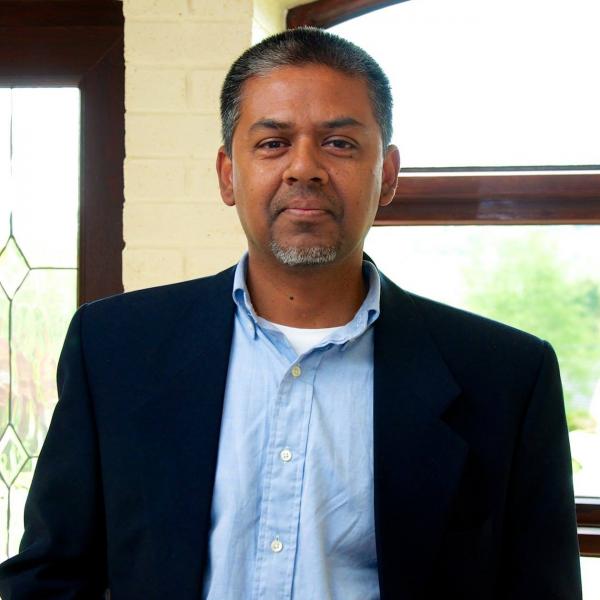
Little did Dr Arman Rahman realise when leaving Bangladesh to pursue a career as a cancer researcher 25 years ago that his journey would bring him full-circle to helping those from his native community in far-flung Ireland.
It has been an adventurous path for Dr Rahman since then, which has taken him through a masters and PhD in Sweden where he initially went to study, including a stint as a cardiothoracic surgeon there, to heading up ground-breaking cancer studies in Ireland.
“I went to Sweden in 1996 to do a masters in public health. The idea was that after the degree I’d go back to Bangladesh, however I stayed on to do a PhD in immunology. An unexpected turn of events saw me pause my PhD to become a cardiothoracic surgeon, as there was a shortage of them at the time,” Dr Rahman recalls.
“Then I realised I had a half-finished PhD, and if I didn’t go back and finish it this would never be done. In 2005 I came back to research, and got my PhD in 2007.
I never went back to surgery because I wanted to pursue my career in the academic world.
“In order to follow that through I came to Ireland in 2008 to do a postdoctoral fellowship in DCU, and that’s where I started in Ireland.”
After working with the Oncomark group in UCD Dr Rahman went on to become a full-time senior research fellow with the university in 2016.
'Magic wand'
He was recently named Senior Researcher of the Year at the Irish Cancer Society Research Awards for his work on a pioneering project made possible through funding of the Society to develop an innovative tissue imaging platform that can help researchers better understand what treatments may be more effective for certain cancer patients using indicators known as biomarkers.
“People can be given treatments that may do more harm than good if there isn’t enough patient-specific information available. It can happen because doctors don’t have a magic wand to know that if they give certain treatments it might have a bad outcome for a particular patient,” says Dr Rahman, of the project that was developed in association with Precision Oncology Ireland under the guidance of Prof William Gallagher.
Biomarkers give us an indication of who will respond well to chemotherapy and those who won’t.
“If you can look at the tissue and be able to tell a person has this or that problem, it’s the best thing imaginable because you can see it right there under the microscope,” Dr Rahman says of the project that was developed in association with Precision Oncology Ireland under the guidance of Prof William Gallagher.
By now a seasoned researcher, he has always been conscious to use the successful pathway he has followed to help his compatriots in any way he can.
Last year he delivered a talk to members of Ireland’s Bangladeshi community as part of the ‘Invisible Spectrum’ series of cancer awareness outreach events organised through Precision Oncology Ireland and the Irish Cancer Society, and he has since been using his background in immunology to help provide reliable information on Covid-19 for millions of fellow countrymen and women around the world through Bengali-language media.
Dr Rahman’s appreciation of the importance of patient input in cancer research has evolved throughout his career, and he now sees this as a vital component in important new projects and studies going forward.
“At first, to me the lab was never the place for a patient, and research was kept away from patients. But the involvement of patients in research gives us the bigger picture so that we understand what we’re doing is not only to publish a scientific paper. I care deeply that whatever I am doing will do good for cancer patients.”
The work of Irish Cancer Society funded researchers is made possible through the kind support of the public.
To help support our cancer research please visit www.Cancer.ie/Donate
Contact the Irish Cancer Society Support Line
If you have worries or concerns about cancer, you can speak confidentially to an Irish Cancer Society Cancer Nurse through the Freephone Support Line on 1800 200 700.
Monday to Friday, 9.00am - 5.00pm

For more information
Phone
1800 200 700
